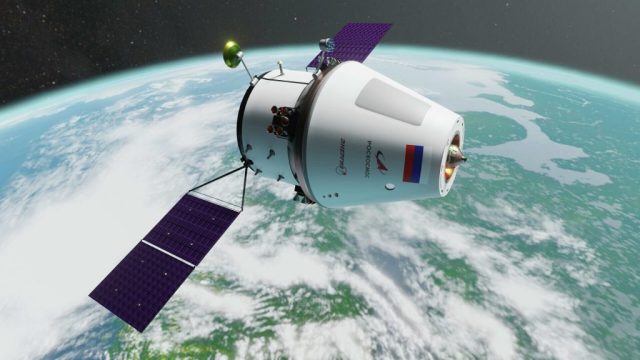It is planned to use it during the flights of the promising Eagle spacecraft
Moscow. December 28. INTERFAX - A universal system for docking spacecraft in near-Earth and near-moon orbits is being developed by the Scientific Research Institute of Precision Instruments (SRI TP), the Russian Space Systems Holding (RKS) reported.
"It is assumed that it will be used to ensure the rapprochement of the promising Russian reusable manned spacecraft Eagle with near-Earth and near-lunar infrastructure facilities," the press service of the holding, which includes the institute, said in a statement.
"The new system is fundamentally different from the ones that existed before. It is located in an unpressurized volume of a promising ship or station, has high radiation resistance and is built mainly on a domestic element base. The system has increased accuracy of measurements of motion parameters, lower weight, dimensions and energy consumption compared to the currently used "Course-ON" equipment," the message says.
The system is being created according to the technical specifications of the Rocket and Space Corporation Energia. Currently, specialists have started manufacturing a prototype of a radio engineering system of mutual measurements for a promising spacecraft measuring signal parameters (IPS), according to a press release.
According to Sergey Medvedev, chief designer of mutual measurement systems at the Scientific Research Institute of TP, "the IPS equipment is primarily designed to work in lunar orbits, therefore, it must have increased radiation resistance."
"The mass and dimensions of the new system will be significantly reduced, the accuracy of measuring motion parameters will be increased, especially in radial velocity - now it is several millimeters per second. In the future, the IPS equipment can also be used at orbital stations," Medvedev said, whose words are given in the message.
The company has been developing, manufacturing and operating mutual measurement systems for spacecraft search, rendezvous and docking for many years. In particular, measurements during automatic docking with the International Space Station are now being carried out by the Kurs-NA system developed by the Research Institute TP.

